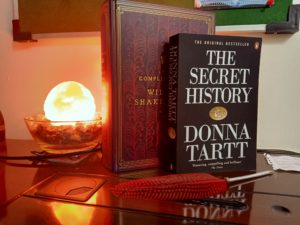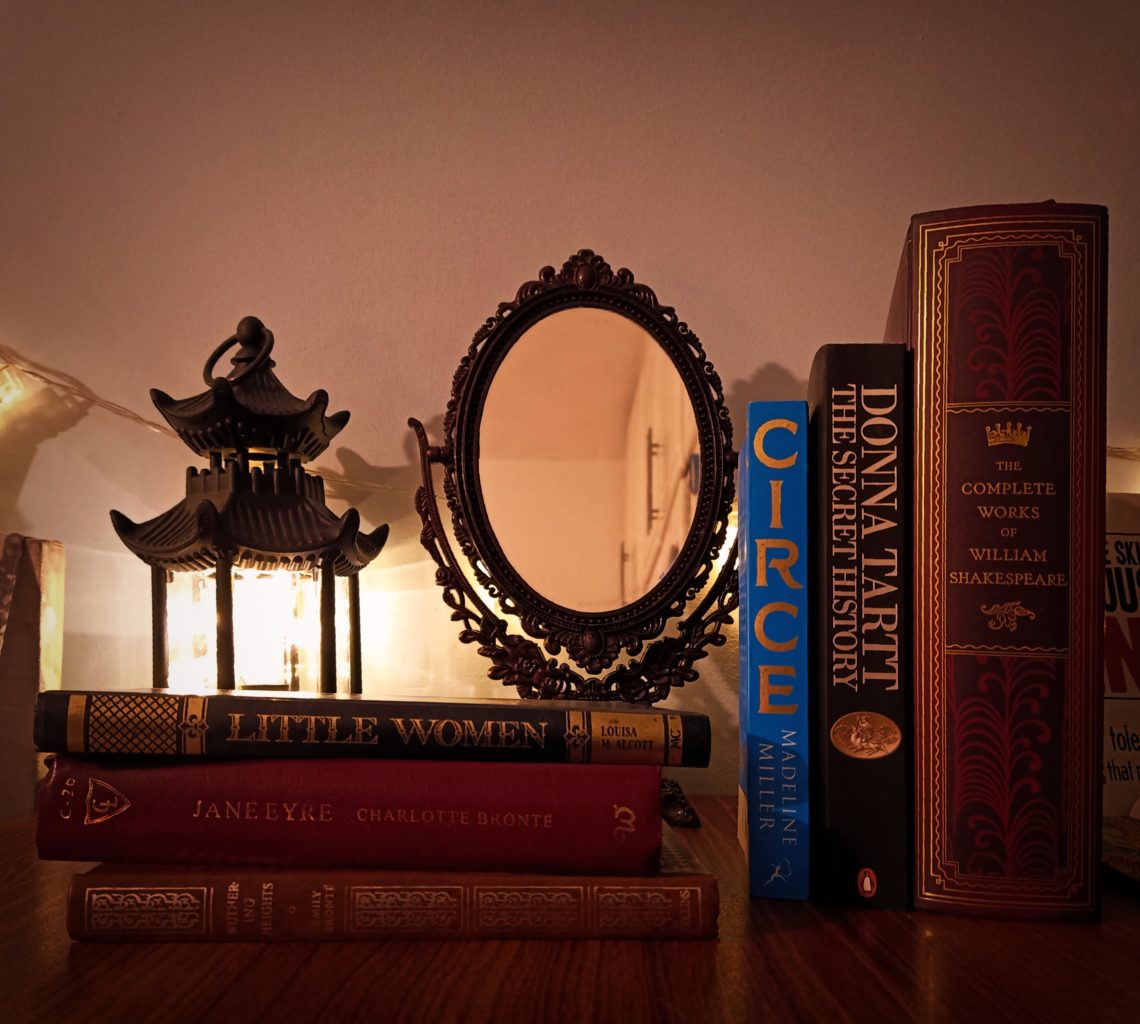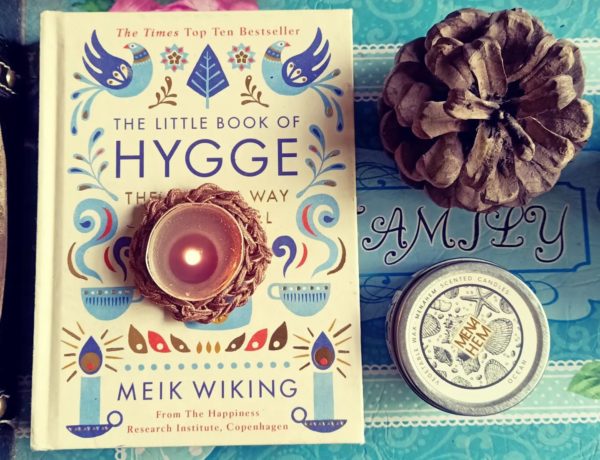My Dearest Readers!
Following my post on Donna Tartt’s “The Secret History“, I thought it only appropriate to followup with a post on Dark Academia and how I came across it. I came across Dark Academia in 2020, during the height of the pandemic. I was a literature student working on my Masters thesis. As a thesis writer, I had already been working from home for a year, barring the occasional trips to the university to meet with my supervisor, but the pandemic really drew this isolation home. It was during this period of extreme isolation that I discovered Dark Academia.
 In my days of working alone at home, I had fallen into the habit of ignoring my work in favour of surfing the net, reading up on random topics that caught my fancy. It was during one of these forays down the internet rabbit hole that I came across Dark Academia. I was instantly interested in this aesthetic that seemed to revolve around academia and studying, the two things a major part of my life seemed to revolve around.
In my days of working alone at home, I had fallen into the habit of ignoring my work in favour of surfing the net, reading up on random topics that caught my fancy. It was during one of these forays down the internet rabbit hole that I came across Dark Academia. I was instantly interested in this aesthetic that seemed to revolve around academia and studying, the two things a major part of my life seemed to revolve around.
Dark Academia, which started out as a sub-genre of the Campus novel, has evolved to become an internet aesthetic bordering on a subculture. A quick search on the internet images of gothic architecture, half filled teacups, vintage books, quills, fountain pens, turtlenecks, tweeds, oxford shoes, old libraries and scribbled notes on loose sheets of paper. The aesthetic seemingly revolves around a romanticisation of academia and research. The images of academia that it evokes draw from previous time periods showing a longing for bygone eras or as Richard Papen from Donna Tartt’s “The Secret History” puts it “a longing for the picturesque”. The New York Times sees Dark Academia as a symptom of “nostalgia” for “a world free of modern technology”. For me, finding this aesthetic fuels a different type of nostalgia, that is, nostalgia for my university days which are now long behind me.
Dark Academia’s focus on the liberal arts and particularly on the Classics also holds a certain appeal for me. I have been interested in Greek and Roman mythology ever since I was young, when my father brought me encyclopaedias on Ancient Greek, Roman and Egyptian cultures. This interest carried on into my adulthood and my higher education. For me, Dark Academia seems to validate that interest.
While Dark Academia has multiple darker and problematic angles, including its glorification of unhealthy lifestyles and emphasis on a Eurocentric education with excludes postcolonial and other marginalised subjects, it nevertheless provides a visual embodiment of the nostalgia that holds many of us who are longing for the intellectual stimulation of our academic days. For me, exploring my own Pakistani version of what this aesthetic could look like for me helped me motivate myself to work during those lonely pandemic months when my thesis seemed to loom large in front of me and my degree seemed to be out of reach. Now it holds a bittersweet element of nostalgia for the days when I was a student and when I too would stay up until the early hours of morning, with my friends or alone, feverishly following threads research that seemed to open up endlessly before me bringing with them a promise of opening up fascinating avenues of knowledge.
Yours Truly!
The Woman Out of Time






No Comments